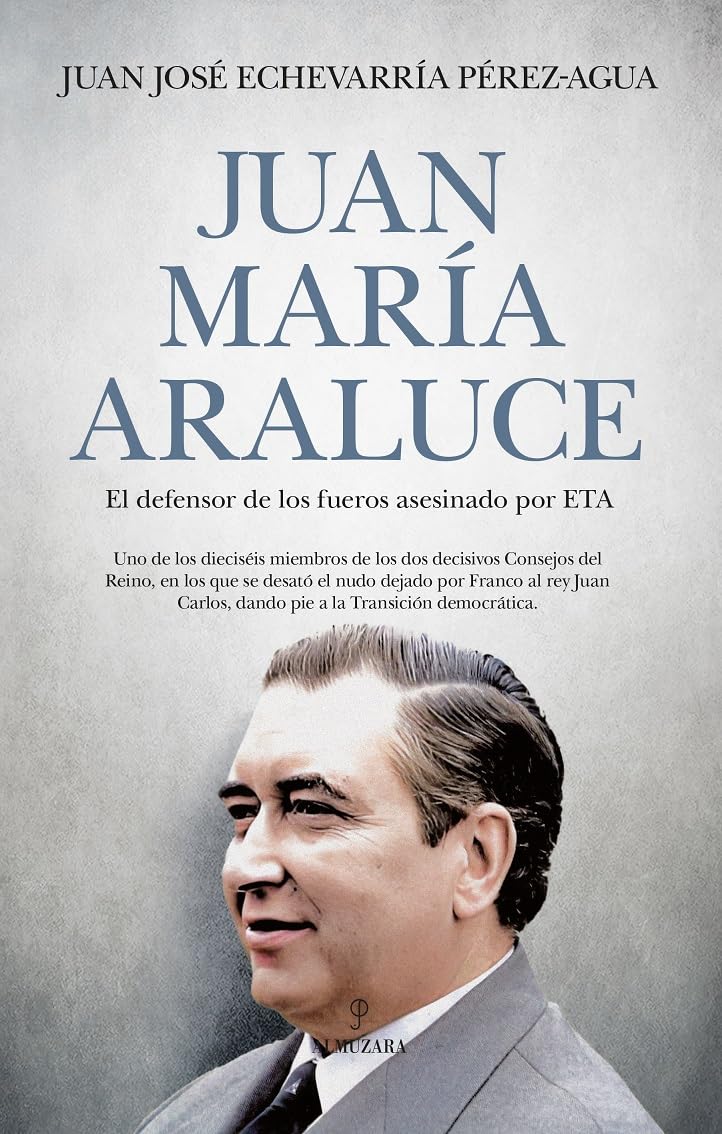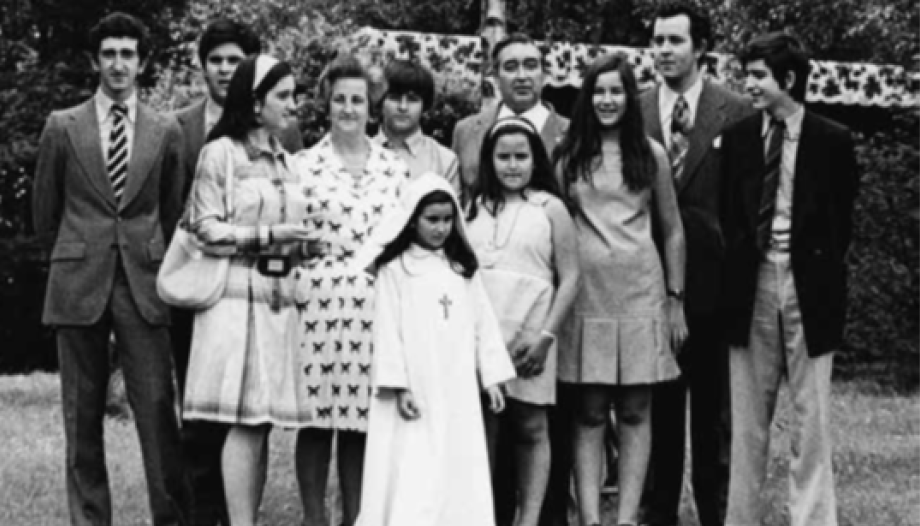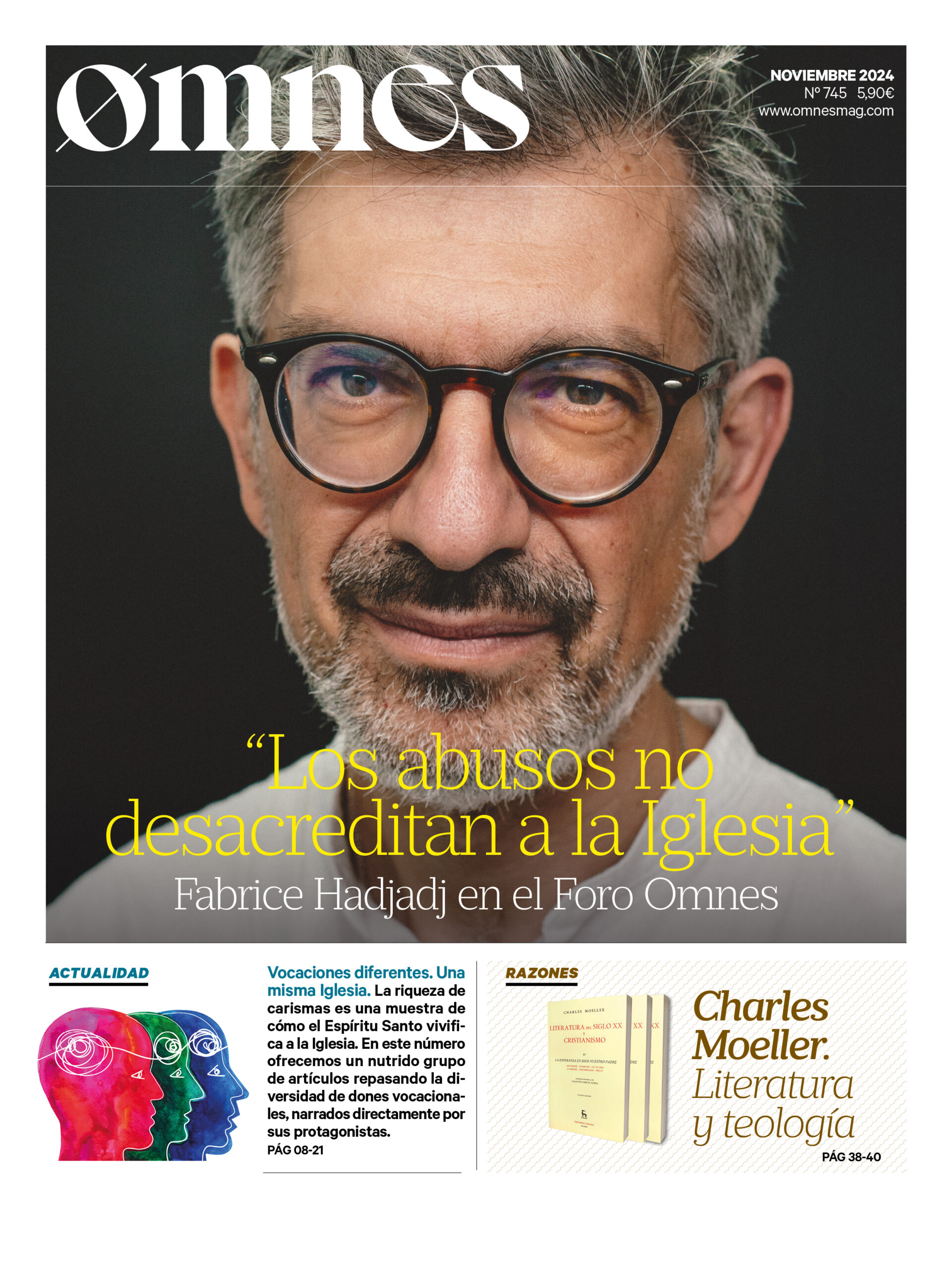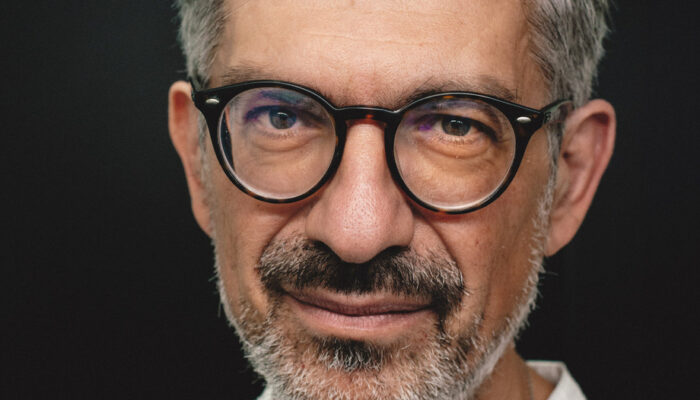I will remember as if it were yesterday that October 4, St. Francis of Assisi and birthday, just arrived in Bilbao, very close to where Juan Mari Araluce Villar was born (1917) in Santurce (today Santurtzi in Basque), on the left bank of the estuary.
Three members of the terrorist group ETA had fired more than eighty machine gun projectiles, of the 9 millimeter parabellum caliber, the 'house' brand, at Araluce, 59 years old, the driver and the bodyguards, in the same Avenida de España (today Avenida de la Libertad), in front of the building where they lived in San Sebastián (Donosti). This was reported by the media, and ETA (V Assembly) assumed responsibility in calls to some of them.
His wife and eight of his children were eating "a plate of spaghetti, when they heard the thunderous sound of gunfire. They looked out onto the balcony, from where, between the treetops, they glimpsed the atrocious scene, which was still unfolding at their feet," narrates journalist and historian Juan José Echevarría Pérez-Agua, in his biography entitled "Juan Maria Araluce. The defender of the fueros assassinated by ETA".
Juan Maria Araluce. The defender of the fueros assassinated by ETA.

Practically in front of his family
"Five of the children, Juan, Ignacio, Javier, José and Maite, hurried down the stairs", and while a priest was able to give the Extreme Unction to the victims, and an ambulance attended to an escort, they put their father in the car and decided to take him to the Nuestra Señora de Aránzazu Residence, today Donostia Hospital. At around three o'clock in the afternoon, his death was certified.
It was the same shock that the undersigned would have with other assassinations. For example, two years later, that of José María Portell on June 28, 1978, a few months before the constitutional referendum of December 6, when two terrorists machine-gunned him in front of his house in Portugalete.
His wife Carmen Torres, who had heard the shots from her house and looked out on the balcony with her children (5), was able to go down to the street and embrace him before the ambulances arrived. Echevarría Pérez-Agua, author of Araluce's biography, quotes Portell on several occasions in his book.
The semblance
The work on the figure of Araluce by the Carlos III University professor Juan José Echevarría, who has worked in El País and CNN+, is more than 600 pages long, and it could be said that it is also an in-depth investigation on Carlism, Montejurra, Basque society and ETA.
"It is much more than a biographical evocation of someone who was, above all, a good man," Jon Juaristi wrote in the prologue. It is the "magnificent portrait of a man, of a time and of a country, this is true History, and not 'story', or 'narrative', or 'memory' or any other of the shameful masks of lies and of what in the medieval centuries the noblemen of Biscay called 'caloña', the slanderous calumny that was poured on the dead", adds the professor and essayist Juaristi, who belonged early and fleetingly to ETA in the late sixties.
Foundation, forgiveness
After the attack, "my mother was a 56-year-old widow with nine children. My older sister (María del Mar) and I were the only ones who had finished our university studies. I, the second of the siblings, was 23 years old, our youngest sister was nine. From one day to the next your whole world comes crashing down," Juan Araluce Letamendía told Omnes.
"From the very first moment my mother, with an inexplicable fortitude from a purely human point of view, told us that 'we had to be happy because Dad is in heaven, that we were Christians and that we had to forgive'. This was the foundation on which the whole family rested".
It was the first message from the legacy of his father, Juan Mari, who had been threatened in different ways and forms, along with his family. Forgiveness. The author of the biography includes it before and on the last page of the book: we must assume that it is not a coincidence:
"Maité Letamendía told TVE's 'Informe Semanal': "We are very happy that we have him, Juan Mari, in heaven, and he is helping us from there (...). I forgive all those who have killed him and we want the hatred to end (...). We are praying a lot for all of them and we forgive them with all our hearts".
Moving away from hatred and lack of freedom
"We stayed one more year in San Sebastian, but in September 1977 the whole family moved to Madrid. My mother did not want her children to grow up in an atmosphere of hatred, fear and lack of freedom, like the one experienced in those years in the Basque Country," adds Juan Araluce.
"My father was a notary by profession. The whole family lived off his work. Aware of what could happen, he used to say that if something happened to him, he would take the key to the pantry with him. That's how it was.
Christian worldview
Juan Mari Araluce and Maite Letamendía were married on June 13, 1949 in the church of San Vicente Mártir in San Sebastián, although she had informally said that he was "a heavy", says the biographer. And the Araluce couple lived in the Gipuzkoan town of Tolosa for almost two decades. "They were the happiest years of their lives and where they raised their nine children," from María del Mar to Marta, the author points out, no doubt based on testimonies from their children and friends. On Sundays, the couple would go out to dinner with two couples of close friends, one a Carlist and the other a nationalist".
"Araluce's worldview was religious," writes the author, who addresses this issue, key to Araluce and his family, in several chapters, sprinkling in other stories. Already as a notary in the town of Gipuzkoa, "Christianity continued to center his existence, as his wedding night reveals, with the image of the Our Lady of Fatima".
Barruntos, family and vocation to Opus Dei
There, Juan Mari took his eldest daughter to St. Mary's parish, and they lived on Eucharistic Thursdays. "Araluce helped his children with their homework before leaving for the notary's office. The boys studied at the Escolapios (...), and the girls at the Jesuitinas. Juan, Araluce's eldest son, had Francisco (Patxi) Arratibel as a classmate at school, "who would be assassinated by ETA" many years later, in 1997, the author points out.
Juan Mari Araluce was from the Nocturnal AdorationThis activity was organized by "the archpriest of Santa Maria, Wenceslao Mayora Tellería, who on September 11, 1949 had celebrated the canonical coronation of the Virgin of Izaskun", about which he had published his history that same year.
And there he took another step, when in 1961 he joined Opus Dei (a year later his wife, Maité, joined Opus Dei). "It was a decision meditated and taken with time, since in 1959 he approached the Work created by Josemaría Escrivá de Balaguer, through his sister-in-law Ana" (Letamendía), he writes.
Called to holiness in the ordinary, in the workplace
"For Araluce, Opus Dei offered a message of religious fulfillment to parents like him," writes the historian and journalist. "Several of his children, such as María del Mar and Juan would follow in his wake, and José, his sixth son, would even become a priest, being ordained in Torreciudad, the Marian shrine built by Opus Dei in Secastilla (Huesca)".
After referring to the beatification of Josemaria Escriva in 1992 by St. John Paul II, who was canonized in 2002, and to his book 'Camino' (Road)The author describes that "Araluce opened his houses in Tolosa and Estella to neighbors to spread the message of the universal call to holiness and apostolate" of Catholics, "a message that convinced Araluce, who was married and had six children at the time. It was a second message of his legacy. Listen to the Lord, and follow him.
Work ethics
The biographer relates that "the Araluce couple had personally met Josemaria Escrivá at a get-together that he had organized for them". founder of Opus Dei offered in Pamplona, in September 1960, where he blessed Maité, pregnant with his second to last daughter, Maite, who would be born the following year". The author also relates at this point the concerns and activities of a nephew, Francisco (Patxi) Letamendía, 'Ortzi', who chatted with his uncle Juan Mari, and his brothers.
In the chapter entitled "The work ethic", Professor Echevarría Pérez-Agua ends this part by alluding to the incorporation of Juan Mari Araluce, already as president of the Provincial Council of Guipúzcoa, to the Board of Trustees of the School of Engineering of the University of Navarra (Tecnun now), and the support to the Higher Institute of Secretarial and Administrative Studies (ISSA), founded in 1963.
"In the approach of bringing God into civil society in order to transform it, men were fundamental, but also women, in the ordinary circumstances of work," the author notes, picking up on the ideas of "Josemaria de Escriva" (sic), "in understanding that Opus Dei had to be supported, 'as in its core, in ordinary work, in the professional work exercised in the midst of the world'. Here is the third message: the work well doneHis sanctification, and it fit him, and his wife.
Provincial Council of Guipúzcoa, Council of the Kingdom
As for his political legacy, "he was the architect of the reinstatement of the Economic Agreement, by interpreting the fueros as a consubstantial element of the restored Monarchy after Franco's death", summarizes the author. After the presidency of the Diputación de Guipúzcoa, in March 1971 he joined the Council of the Kingdom: the procurators in Cortes voted him as one of their two representatives in the highest consultative body of the Head of State, achieving 86 votes in favor and none against.
The Council of the Kingdom, formed by 17 members, among them Araluce, was in charge of passing to King Juan Carlos on July 3, 1976, the shortlist for the election of the president of the Spanish government. And the King chose Adolfo Suarez over Silva Muñoz and Lopez Bravo.
The relevance of Juan Mari Araluce's death, three months later, escaped no one, and even appeared in The Washington Pot and The New York Times, "highlighting the moderate disposition of the deceased and his defense of a decentralized territorial conception", wrote the biographer. But here we prefer to conclude with some of his children and grandchildren.
"A clean conscience without hatred."
Remembering his father and everything that happened to the family during those years, Juan Araluce Letamendía told Omnes: "Forty-eight years have passed. My mother died peacefully 14 years ago accompanied by the affection of her nine children and 25 grandchildren. None of them knew their grandfather. When I am ever asked how we were able to get by, I answer that I can't explain it".
"We are proud to have inherited from our parents a clear conscience without hatred, and a faith that leads us to trust in a Providence that weaves our lives with continuous and often inexplicable twists and turns. But after 48 years you look back and realize that everything that has happened has a meaning. As the French say, ‘tout se tient', everything fits".
His sister Maite, mentioned above, is the president of the Association of Victims of Terrorism. Thus has described to his father not long ago: "My father managed to bring us to Madrid with him whenever our school or university schedule allowed us to do so. He even taught us how to run in the running of the bulls in Estella, where we spent our summers. He was a tremendously generous person, thinking of others and a great conversationalist. He was also a great listener. He knew how to listen.
And his grandson Gonzalo, journalist, has writtenWith that sense of humor, my grandfather tried to play down the threats. My grandmother Maite, his wife, suffered from migraines. that made him stay in bed, in silence: a pain as indescribable as it was recurrent that would disappear after the murder. He never said it was due to that pressure".
"If my grandfather stood up to that terror," he adds, it was because of my grandmother Maite, knowing that she would be able to take up all the space he could leave," he says.








